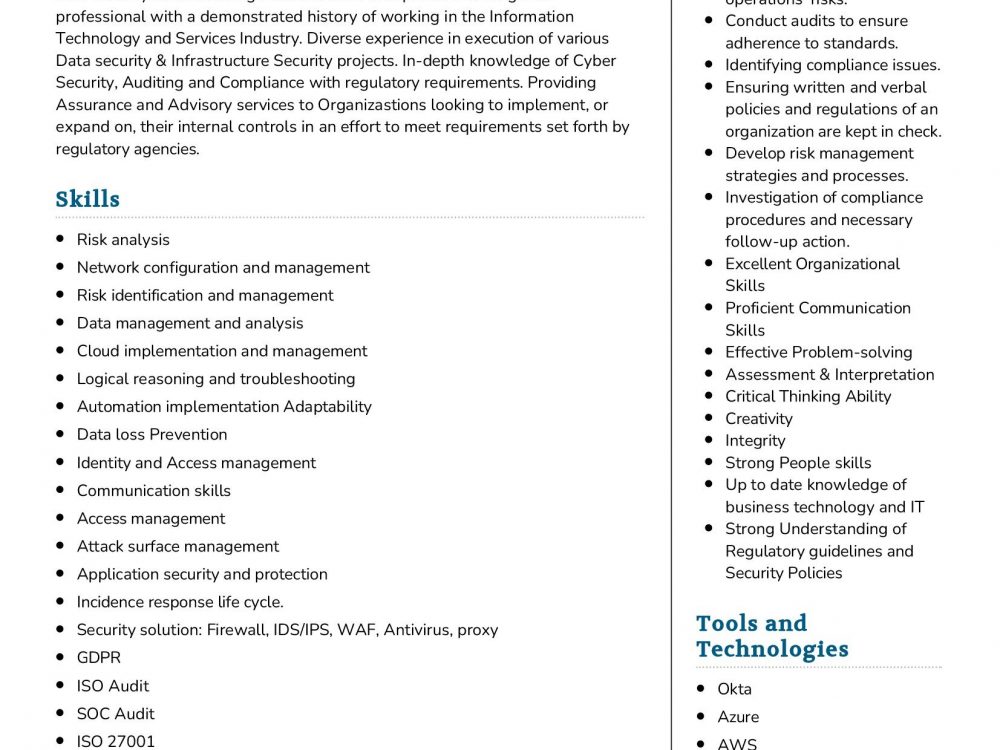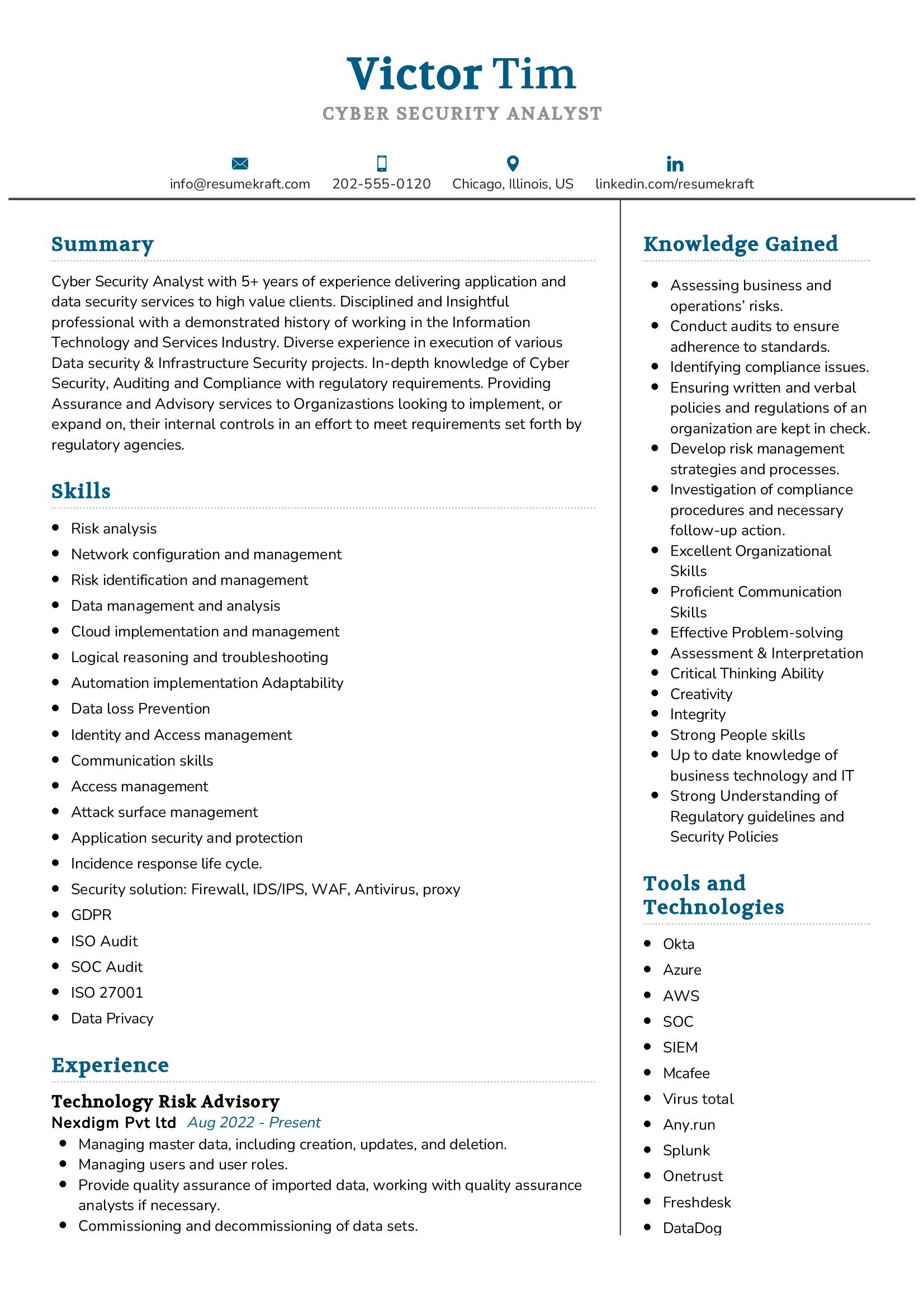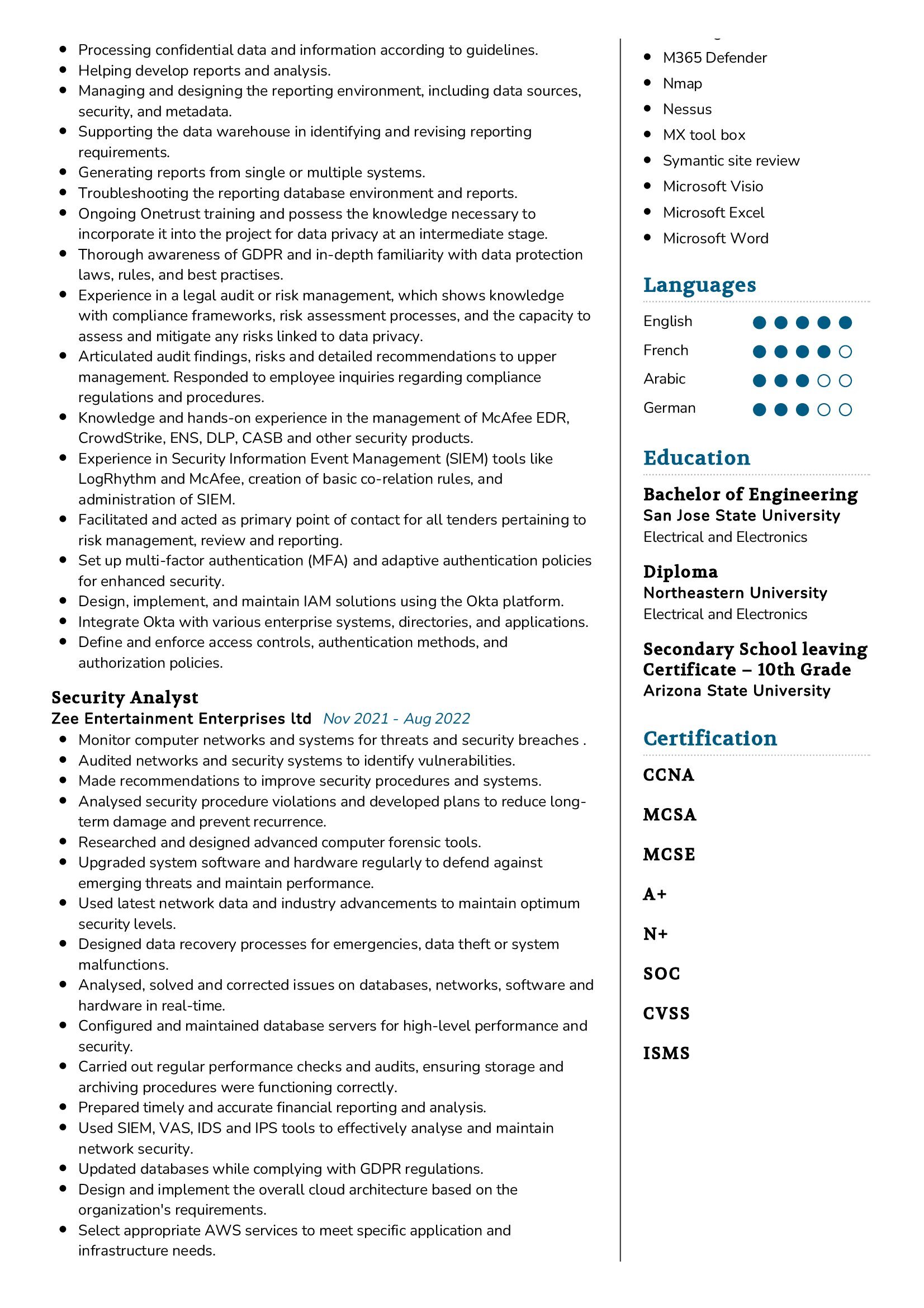The Role of a Cyber Security Analyst
In today’s digital landscape, the role of a Cyber Security Analyst has become increasingly vital in organizations worldwide. This position requires a unique blend of technical expertise and a deep understanding of cybersecurity principles. Let’s dive into the multifaceted role of a Cyber Security Analyst, a position that plays a crucial role in safeguarding an organization’s digital assets and data.
A Cyber Security Analyst is responsible for protecting an organization’s computer systems and networks from cyber threats and attacks. They work diligently to ensure that the organization’s sensitive information remains confidential and that critical systems remain operational. This role requires constant vigilance, adaptability, and a commitment to staying ahead of evolving cyber threats.
Job Requirements for a Cyber Security Analyst
Becoming a Cyber Security Analyst is a rewarding but challenging journey that demands a specific set of skills and qualifications. Let’s delve deeper into the prerequisites one needs to fulfill to excel in this role:
- A Bachelor’s or Master’s degree in Computer Science, Information Technology, or a related field, showcasing a strong foundation in the technical domain.
- Profound knowledge of cybersecurity principles, including network security, encryption, and threat detection.
- Hands-on experience in cybersecurity, with a track record of identifying and mitigating security vulnerabilities.
- Strong analytical and problem-solving skills, essential for dissecting and responding to security incidents.
- Proficiency in cybersecurity tools and technologies, such as firewalls, intrusion detection systems, and antivirus software.
- Excellent communication skills, both written and verbal, to convey security issues and solutions effectively.
- An understanding of compliance regulations and industry standards related to cybersecurity.
- The ability to work under pressure and respond to security incidents in a timely manner.
Continuing education and certifications in cybersecurity, such as Certified Information Systems Security Professional (CISSP) or Certified Information Security Manager (CISM), can enhance your qualifications in this competitive field.
Responsibilities of a Cyber Security Analyst
The role of a Cyber Security Analyst encompasses a wide range of responsibilities, each crucial in maintaining the organization’s cybersecurity posture. Let’s explore the core responsibilities that define this role:
- Monitoring network traffic and systems for signs of suspicious activity or security breaches.
- Conducting vulnerability assessments to identify weaknesses in the organization’s security infrastructure.
- Responding to security incidents, including investigating breaches and implementing corrective measures.
- Installing and configuring security software and hardware to protect the organization’s assets.
- Developing and implementing security policies and procedures to ensure compliance with best practices and industry standards.
- Collaborating with IT teams to provide cybersecurity guidance and support for system and application development.
- Conducting security awareness training for employees to promote a culture of cybersecurity within the organization.
- Staying informed about the latest cybersecurity threats and trends to proactively mitigate risks.
Each responsibility comes with its own set of challenges and opportunities for growth, making this role dynamic and ever-evolving.
Cyber Security Analyst Resume Writing Tips
When crafting your resume for the role of a Cyber Security Analyst, remember that your resume is your gateway to securing a position in this competitive field. Here are some tips to help you create an impactful resume:
- Highlight your experience in identifying and mitigating security threats, showcasing instances where you have protected organizations from cyberattacks.
- Detail the security policies and procedures you have developed and implemented, emphasizing their impact on enhancing the organization’s security posture.
- Include quantifiable achievements, such as the percentage reduction in security incidents or successful security audits.
- List relevant certifications, demonstrating your commitment to staying updated with the latest cybersecurity practices.
- Customize your resume for each job application, tailoring it to match the specific job requirements.
Remember, your resume should effectively communicate your expertise and demonstrate your suitability for the role of a Cyber Security Analyst.
Cyber Security Analyst Resume Summary Examples
Your resume summary is the opening statement of your career story, setting the stage for what follows. Here are some examples to inspire you:
- “Cyber Security Analyst with over 5 years of experience in identifying and mitigating cyber threats, adept at securing organizations and ensuring data confidentiality.”
- “Dedicated Cyber Security Analyst with a proven track record of implementing robust security measures, a vigilant guardian of digital assets.”
- “Experienced Cyber Security Analyst with expertise in threat detection and incident response, committed to maintaining a secure digital environment.”
Each summary offers a glimpse into your expertise and dedication in the field of cybersecurity.
Creating a Strong Experience Section for Your Cyber Security Analyst Resume
Your experience section is the heart of your resume, where you showcase your achievements and contributions to previous employers. Here are some examples to guide you:
- “Led incident response teams during cyberattacks, resulting in a 30% reduction in incident recovery time.”
- “Implemented a comprehensive cybersecurity training program, leading to a 50% increase in employees’ awareness of security best practices.”
- “Managed security audits and achieved a 95% compliance rate with industry standards and regulations.”
Each experience you detail paints a picture of your impact and contributions as a Cyber Security Analyst.
Education Section for Your Cyber Security Analyst Resume
Your educational background is a testament to your commitment to learning and gaining expertise in cybersecurity. Here’s how you can list your educational achievements:
- Master of Science in Cybersecurity, XYZ University, a comprehensive program focusing on advanced security strategies, 2018.
- Bachelor of Science in Computer Science, ABC University, the foundation of your IT career, 2014.
- Certified Information Systems Security Professional (CISSP), demonstrating your expertise in information security, 2019.
Each educational qualification represents a milestone in your journey to becoming a Cyber Security Analyst.
Cyber Security Analyst Skills for Your Resume
Your skill set is your toolkit, filled with essential abilities that you’ve honed over the years. Here are the key skills a Cyber Security Analyst should possess:
Soft Skills:
- Attention to detail, ensuring that no security threat goes unnoticed.
- Problem-solving abilities, crucial for identifying and resolving security issues.
- Strong communication skills, for effectively conveying security concerns and solutions to stakeholders.
- Adaptability, as the cybersecurity landscape is constantly evolving.
- Teamwork and collaboration, especially when responding to security incidents.
Hard Skills:
- Knowledge of cybersecurity principles, including threat modeling, risk assessment, and encryption techniques.
- Familiarity with cybersecurity tools, such as intrusion detection systems and vulnerability scanners.
- Experience in conducting penetration testing and vulnerability assessments.
- Proficiency in configuring and maintaining firewalls and antivirus software.
- Understanding of compliance regulations, such as GDPR and HIPAA, as they relate to cybersecurity.
Each skill is a valuable asset that contributes to your effectiveness as a Cyber Security Analyst.
Common Mistakes to Avoid When Writing a Cyber Security Analyst Resume
As you craft your resume, it’s essential to steer clear of common mistakes that could hinder your chances of landing your dream job in cybersecurity. Here are some pitfalls to avoid:
- Using generic language and not tailoring your resume to the specific job you’re applying for.
- Focusing solely on job duties rather than highlighting your achievements and impact.
- Neglecting to include a well-written cover letter, which can help you stand out from other applicants.
- Overloading your resume with technical jargon that may not be easily understood by non-technical hiring managers.
- Skipping the crucial step of proofreading, which can leave a negative impression on potential employers.
Avoiding these mistakes will help you create a resume that effectively communicates your qualifications and expertise as a Cyber Security Analyst.
Key Takeaways for Your Cyber Security Analyst Resume
As we conclude this comprehensive guide, here are some key takeaways to keep in mind when crafting your Cyber Security Analyst resume:
- Emphasize your experience in identifying and mitigating security threats, showcasing your ability to protect organizations from cyberattacks.
- Showcase your technical proficiency in cybersecurity tools and technologies, demonstrating your readiness to tackle complex security challenges.
- Detail the impact of your security policies and procedures on enhancing an organization’s security posture.
- Include relevant certifications that validate your expertise and commitment to ongoing professional development.
Finally, feel free to utilize resources like AI Resume Builder, Resume Design, Resume Samples, Resume Examples, Resume Skills, Resume Help, Resume Synonyms, and Job Responsibilities to create a standout application and prepare for the Cyber Security Analyst job interview.
With these insights and tips, you’re well-equipped to craft a compelling resume that tells the story of your expertise and dedication in the field of cybersecurity. Best of luck in your job search!



